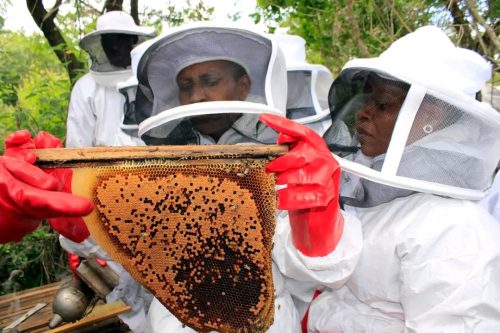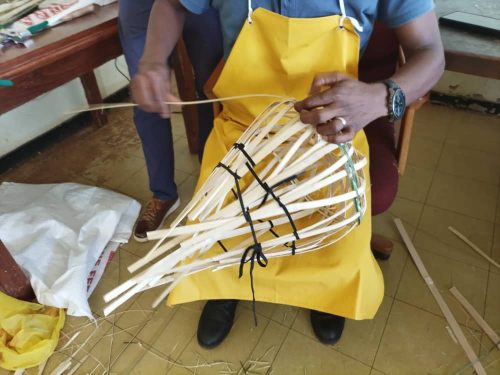BY PHESHEYA KUNENE – EDITOR
MBABANE – The Food and Agriculture Organization of the United Nations (FAO), in collaboration with the Ministry of Agriculture, has concluded a five-day capacity-building workshop designed to strengthen Eswatini’s beekeeping sector and catalyze rural economic growth.
Veterinary and livestock extension officers from all four regions were trained in advanced apiculture techniques, positioning them to support smallholder farmers and stimulate sustainable honey production nationwide.
Beekeeping in Eswatini is more than a traditional pastime, it is a critical component of the country’s agricultural economy. Honey production not only provides a high-value commodity for domestic and export markets but also enhances crop yields through pollination and preserves biodiversity by supporting native flora.
Estimates indicate that over 60 percent of rural households rely on small-scale beekeeping as a supplementary source of income, yet the sector remains largely underdeveloped due to limited technical knowledge and inadequate extension services.
“The beekeeping sector is a vital pillar for rural development and environmental sustainability in Eswatini,” said Dr.
Thembi Ndlangamandla, National Apiculture Focal Point. “By equipping our extension officers with advanced apiculture skills, we are laying the foundation for resilient, profitable enterprises that can transform rural livelihoods for generations.”
The workshop covered a comprehensive range of topics, including honeybee biology and behavior, colony management, apiary design and establishment, pest and disease control, data collection, harvesting, and value addition of hive products.
Beyond the technical skills, officers received training in enhanced extension methodologies to ensure knowledge is effectively transferred to farmers, enabling them to construct and manage hives, improve yields, and generate diversified income streams.
Selby Mduduzi Nyawo, Livestock Officer at the Ministry of Agriculture, emphasized the broader significance: “Robust extension services are essential for unlocking the full potential of apiculture, from improved crop pollination to the creation of sustainable rural economies. This project represents a strategic investment in climate-smart agriculture.”
FAO’s intervention is already shaping Eswatini’s agricultural landscape. By enhancing the capacity of extension officers, the initiative strengthens the entire beekeeping value chain, from hive construction and colony management to honey harvesting and processing.
Smallholder farmers are now better equipped to produce high-quality honey for local markets and potential export, while communities benefit from improved nutrition, diversified income, and ecosystem resilience.
The initiative also supports the establishment of dedicated apiculture hubs and the promotion of bee-friendly indigenous flora, encouraging environmentally sustainable practices that further enhance agricultural productivity. As these trained officers reach more farmers, the ripple effect is expected to expand, creating a robust national network of beekeeping enterprises that contribute to both economic growth and food security.
For Eswatini, this FAO-led project signals a turning point: agriculture is no longer confined to traditional crops or livestock. Beekeeping, once considered marginal, is emerging as a climate-resilient, profitable, and scalable venture capable of transforming rural livelihoods and inspiring investment.
For farmers and entrepreneurs, the message is clear: the future of Eswatini’s agriculture is buzzing with opportunity.



